A Textile Engineer who spent twenty years of his life working as a professional in lifestyle and sportswear companies, Rahul Singh, CEO of The Beer Cafe was destined to be an entrepreneur. After doing a series of start-ups with a few uphills and downhills Rahul started The Beer Café at the age of 42. The popular chain has grown formidably in a short span of time and is now a well-known name in the Food Service Industry.
Rahul Singh Tells the Journey of The Beer Cafe
In an exclusive interaction with The Restaurant Times, Rahul Singh talks about how he started The Beer Café, the challenges he faced, the business mantras he follows, and his future plans. Edited Excerpts…
Posist: Tell us about the inception of Beer Café
Rahul Singh: There was no alco-beverage chain in India. Every now and then, a new fad comes in the form of discotheques, nightclubs and lounge bars. But cafes remain consistent with their offerings. Socializing is now an inescapable phenomenon and these cafes serve as a perfect neighborhood meeting place for urban consumers. We saw a white space there and filled it with merging the two: beer and café. Thus, began The Beer Cafe’s journey in April 2012, with the launch of our first outlet in Gurgaon. It started with a vision to stimulate communities towards fun and responsible drinking culture. The response has been overwhelming and The Beer Café is already the largest and most profitable alco-beverage brand in the country.
Posist: You mortgaged your house to open The Beer Cafe. How was that phase for you and how did you overcome the financial hardships?
Rahul Singh: It is all about putting your skills in the game. In India, you don’t get private equity; you don’t get bank loans till you prove the concept. So, either you borrow from friends and family or invest your own capital. Coming from a Service background, there is no money in my family. My father is a retired professional. I am a professional turned entrepreneur. Having failed in my last ventures, I was standing at ground zero.
So at the time of the inception of The Beer Cafe, either I’d have to go back to my job or start the business from scratch. I mortgaged the house I was living in; took a Loan against Property. It is an expensive interest loan, but it helped me to scale up and start four-five outlets together. We created a proof of concept and got Investors and Venture Capitalist. The rest, as they say, is history.
Posist: It must be a difficult time. How did you handle the pressure?
Rahul Singh: The Interest Rates are very tough. If you have an Idle Property you can mortgage it easily. But mortgaging the house you are living in is a huge risk. If anything went wrong, I wouldn’t even have a room for myself. My wife didn’t work; my son was going to college. It was a huge risk. But once you take the risk, you know that your life depends on it. It was “When the going gets tough, the tough get going” story.
Posist: Coming from a non-hospitality background, what kind of skills did you have that helped you in the Food Service Business?
Rahul Singh: I am an Engineer. I am a very analytical and deep-diving person. I get into the nitty-gritty and I have been working hard. Getting my hands dirty doesn’t bother me. I am a people person and get along with them very well. I can build and lead a team. Once you put all these traits, you don’t need anything else. If you ask me to work in a kitchen, I wouldn’t say it is Rocket Science, but it does require a certain amount of Skills Set training for being a Chef, which I lack. If I had to be a Bartender, I’d need to have a certain passion for preparing the Cocktails.
But business is not passion. At the end of the day, you are an entrepreneur, and you need a particular skill set to run a professional life. The basic fundamentals of the business remain the same, and that’s what I focus on.
Posist: There is a lot of good word around about the Human Resource of The Beer Cafe. What is the secret that keeps your employees happy?
Rahul Singh: We initially started with a very lean team. When you are cooking on your own, there are a lot of inefficiencies and you need to work multiple shifts. In our case as well we worked two shifts. On average, we have 15 employees, including all departments such as the Front End, Kitchen, and Service. At any given time, we have 7-8 people working, and that is a very lean operation. But the advantage is that the volume of remuneration is shared between 15 people, as compared to the 50 people in other restaurants.
This is how our staff has a more take home and salary than any other restaurant. So, a good remuneration is the first step to employee happiness.
Second, each and every person is a stakeholder in the company. Standalone Restaurants and Restaurant Chains work very differently. Global Restaurant Chains are not able to give a share to their employees in India as they are not listed in India. There are other Restaurants that want to keep everything in their own hands. But I am a firm believer in sharing wealth and shareholding. As of now, we have 652 employees right now and everyone owns a share.
“When an employee holds a share in a company they are no longer just employees; they are your Partners. So they happen to stay longer,” says Singh
As per the Indian law of ESOP (which is a defined law), you can’t equate the shares within a year. They are locked built-in. The Locking Period is three years.
This results in employees saying they have a great salary, they love their job and would stick to the company. Later, when the company gets listed, their shares go up. If you look at Infosys and other e-commerce companies, ESOPs have done really well in reducing attrition.
The last thing is that a lot of our employees are Blue Collared. I have 40-50 people working in the office who are White Collared. But at the Front End, everybody is Blue Collared. For Blue Collars, the Government of India has a scheme of ESI Dispensaries. As per the law, a portion of the wages goes to the Government to build the Corpus. Thus we have a huge and exhaustive healthcare plan for employees that also includes their spouses. We have the same healthcare plan for everyone; whether it is the CEO, Founder, or a House Keeping Boy.
This could be considered a huge investment, but for me, it is very low because I don’t see it as an expense. Overall, our attrition rate is about two percent, which is very healthy.
Posist: What are your plans for your future? Do you plan to introduce any new brand along the same lines?
Rahul Singh: Right now we have a lot to do with The Beer Café. We want to keep increasing the food in our portfolio. We believe in innovating and providing value to our guests in every way possible. We want our guests to have access to an international beer experience right in their neighborhood. We already have 14 outlets in Delhi NCR, 10 in Mumbai, 3 in Pune and Bengaluru, 1 each in Chandigarh, Amritsar, Mohali, and Ludhiana. This Fiscal Year the Store Count clocks to 42 stores pan India. We’ve taken the #loverforbeer to the east with Kolkata as our new destination.
If we add anything, it would be in the same environment. It would be more around Alcoholic Beverages; something which is easy and non-complicated, and more scalable. My fundamentals are very clear. I believe in the RSS Model: Replicable, Scalable and Sustainable. These are the key points of running a restaurant. A number of business models are Replicable and Scalable, but not Sustainable, and that’s why they fail to expand. You need to have all three factors. McDonald’s, Starbucks, they all follow the same rule.
Posist: What are the challenges in the Restaurant Industry?
Rahul Singh: The Law of the land- this is my pet peeve. Our own constitution seeks for a complete prohibition of alcohol across the nation and allows each state to govern its own policy for the control of alcohol use.
There is no central control over the sale and consumption of liquor. Each state has a free hand to adopt a policy linked to archaic acts. These acts (the Punjab Excise Act 1914 or the Bombay Prohibition Act 1949 ) are toned in colonial-era paternalism, which sees the state as the ultimate arbiter of what’s fit for the citizens of that state.
Gujarat has total Liquor Prohibition and Bihar has gone dry recently. Karnataka is imposing fines on bars for not selling the minimum prescribed amount of liquor bottles. Beer and Wine are identified as Agri-products in most countries and WHO prescribes the use of these low on alcohol beverages to wean people away from distilled hard spirits/liquor. In India, the State Excise is a Revenue Department which has to fill their exchequer and prefers to push high on alcohol beverages to drive more revenues.
For a coffee chain, the rollout is rather quick. Get an online tax ID, FSSAI number and open the doors. Bars have to go through 20-30 licenses/approvals before serving the first pint.
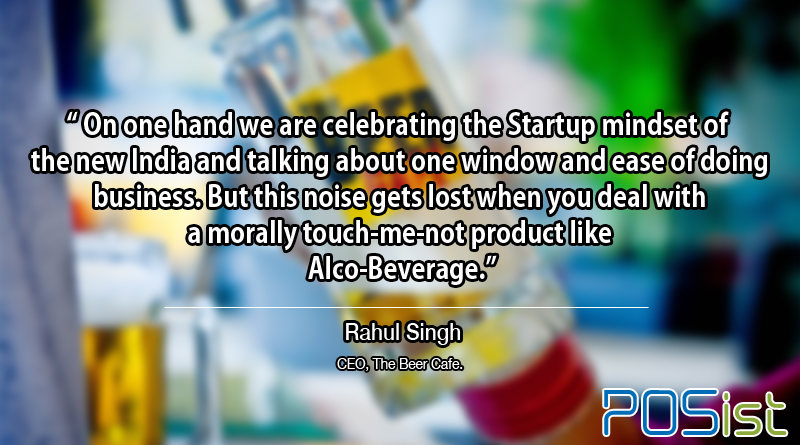
The business has high barriers to entry. It is a kind of a moat which doesn’t allow many players to enter the sector. This keeps our enterprise at the forefront. We have 33 outlets operational and 12 under fit-outs. The nearest competition has 15 outlets and they started their first outlet in 1996. We began 3 years back!
“The Real Estate is the biggest paradox in the Restaurant Business. We have Third World Sales and First World Rentals. Our business is dependent completely on location and the demand outstrips the quality supply,” says Singh.
So, what we have is the same catchment being chased by everyone – from banks, clothing outlets to restaurants. This increases the cost of rents and makes the outlet level metrics unviable. The worldwide benchmark is below 10% of revenues for the cost of occupancy. Here, it’s in the range of 20-30%.
I spend a lot of time doing research on areas we plan to open in. I beat my head with the landlords who see money as the only motivator. It takes a lot of time and energy convincing them to sign us up.
As the brand gets traction and the goodwill spreads, we are now getting better at it and real estate agents and organized malls/hubs are making us part of their zoning. But, this challenge remains one of the biggest for us.
There are a lot of Governmental approvals and needed a license to open a beer cafe. Being in a mall makes things easier, but we are still seen as a place that sells alcohol (although beer is not considered to be alcohol in a lot of countries). For the Indian government, there is no difference between a beer and hard liquor. In Delhi alone, around 12 licenses have to be procured from the Department of Tourism, the nearest police station, the pollution control certificate, MCD trade license, tax license, etc, before you can actually get a liquor license.
There is no common policy; they differ from state to state. Compliance and paperwork is a daily routine and time-consuming. A beer cafe cannot have a religious and educational institution in the vicinity. That is why we prefer to be present in malls because malls come with approved plans. But since malls get the footfalls, we have to deliver the best too, and there is revenue sharing as well. The good part is that malls don’t see us as a ‘Nashe ki dukaan’! In fact, many have positioned us near a food court, which was an unheard-of thing earlier.
As told to The Restaurant Times by Posist


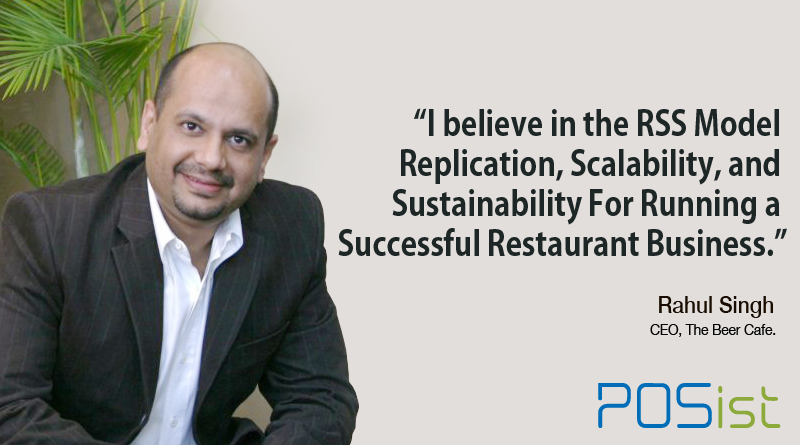
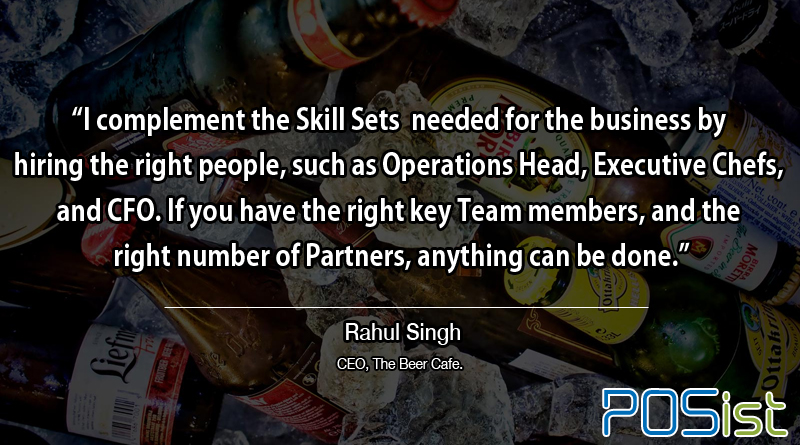

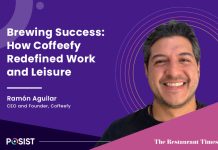
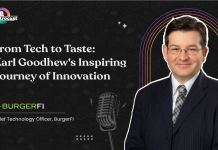








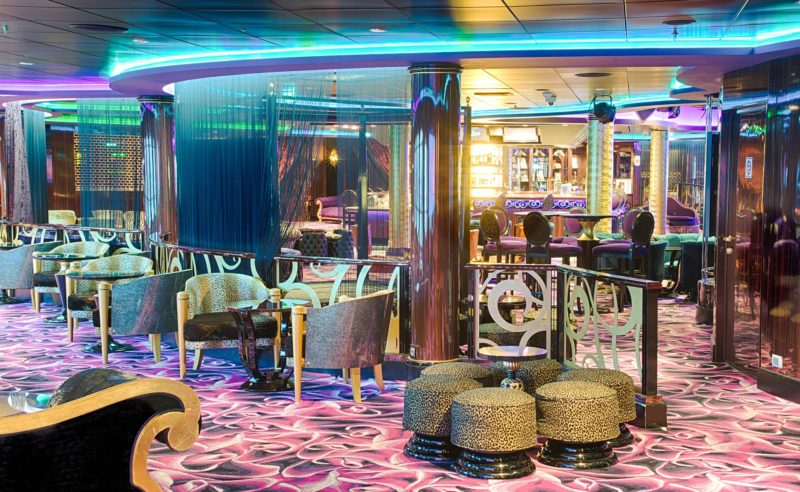
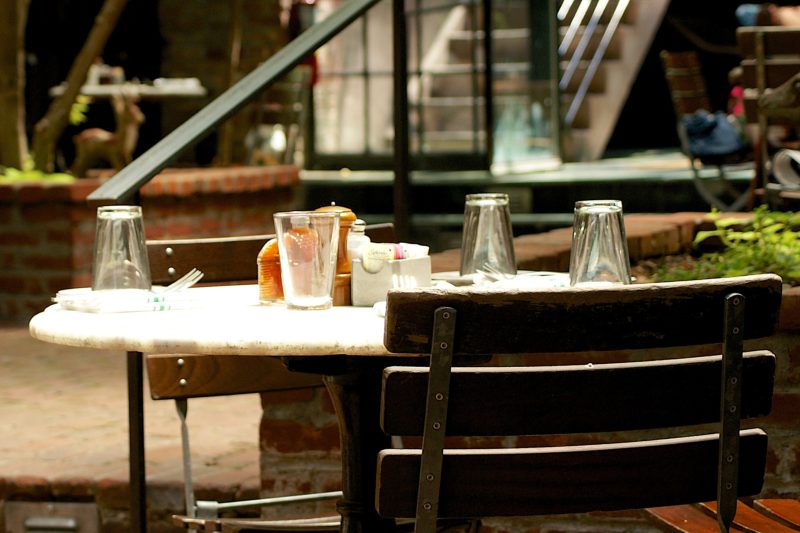

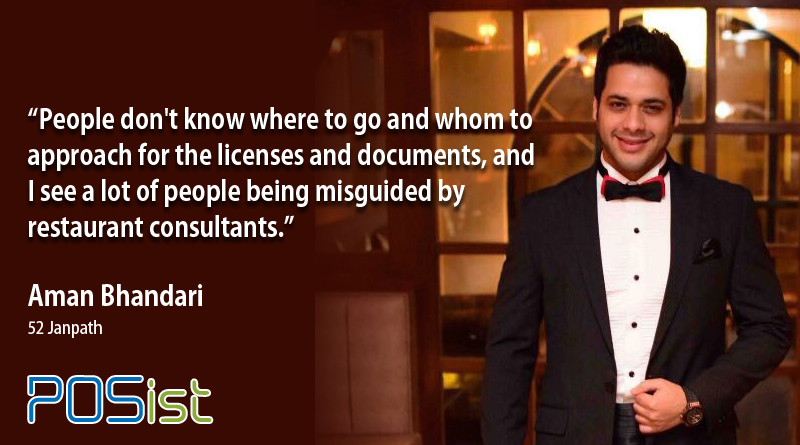
The beer cafe’s story is very inspiring to read. It certainly is very inspiring for aspiring restaurateurs.
Very inspiring journey and informative as well. Good work Restaurant Times
It is really impressive how Rahul Singh started The Beer Cafe, and the chain is now very popular among the masses.
Impressed with Rahul Singh’s journey. I like his concept of having each employee as a shareholder ,that creates employee loyalty, ownership …….